Product pictures
| Amount Per 1 package, 170 g | |||
| Calories | 210 Kcal (879 kJ) | ||
| Calories from fat | 72 Kcal | ||
| % Daily Value* | |||
| Total Fat | 8g | 12% | |
|---|---|---|---|
| Saturated Fat | 3g | 15% | |
| Cholesterol | 100mg | 33% | |
| Sodium | 460mg | 19% | |
| Total Carbs | 18g | 6% | |
| Sugars | 3g | 12% | |
| Dietary Fiber | 3g | 12% | |
| Protein | 16g | 32% | |
| Vitamin C | 15mg | 25% | |
| Vitamin A | 0.1mg | 4% | |
| Iron | 0.6mg | 3% | |
| Calcium | 80mg | 8% | |
* Percent Daily Values are based on a 2000 calorie diet. Your daily values may be higher or lower depending on your calorie needs.
Find out how many calories should you eat.
Ingredients And Nutrition Overview
Best
choice Good
choice Poor
choice Avoid
it!
choice Good
choice Poor
choice Avoid
it!
-
WeightWatchers Points: 4.3, PointsPlus: 5, SmartPoints: 6
WeightWatchers Points are estimated by carbohydrates, fats, protein and fiber in product. They are not an affirmation of better quality or nutritional value of the product or its manufacturer. Only way to count for dieters. Less points are better.
Read more at Weight watchers diet review -
Much saturated fat
Too much saturated fat raises blood cholesterol, that can increase the risk of heart disease.
This fact has been approved by most health organizations in the world.
You have to limit the intake of it by your recommended daily intake.
Ideally, we should eat less than 10% of calories from saturated fat, so the reference value for an average adult is 24 grams daily.
Remember: a 1-ounce slice of regular cheese has nearly 5 grams of saturated fat.
Read more about fat -
Very high cholesterol
Today cholesterol is no longer a villain. The 2010's USDA guidelines told us to limit cholesterol from foods
Now experts say cholesterol is "not a nutrient of concern" because cholesterol from foods doesn't cause higher
blood cholesterol levels.
Nevertheless try to consume no more than 300 milligrams daily.
This product has 90 mg of cholesterol or more.
How to lower the cholesterol intake? Here are some advices
- Try to limit your cheese, dairy and meat intake to one item per meal.
- Avoid meals with multiple sources of cholesterol (chicken with cheese, junk food)
- Try to indclude in your diet low- or nonfat dairy, seafood, legumes and nuts.
- Choose water instead of milk for your coffee.
-
Salty! Has over 19% of the daily sodium max
The average American consumes 5,000 mg of sodium daily — twice the recommended amount amount of 2400mg for healthy adults, this is 1 teaspoon of salt.
For medical reasons many people should not exceed 1500mg of sodium.
Surprisingly, you're responsible for only 15% of the sodium in your diet the bigger part - 75% of the sodium that you consume each day comes from processed foods, not home cooking or the salt shaker.
Excess sodium intake increases the risk of high blood pressure, hypernatremia, hypertension, cardiovascular disease and other heart problems.
Are these reasons enough to cut the sodium intake? No doubt! -
Convert Salt tsps to Sodium mg easily
Salt (NaCl) is not excactly sodium (Na).
It is not right to use these terms as synonyms.
The FDA recommended limit of sodium is 2,300 mg per day (or even less - about 1500 mg while one is on low sodium diets).
This is much less than the weight of salt.
(5,750 mg per day or 3,750 mg for low sodium diet) and not so convenient to calculate.
Know how much sodium is in your salt - without a calculator:
1/4 tsp salt = 600 mg sodium
1/2 tsp salt = 1200 mg sodium
3/4 tsp salt = 1800 mg sodium
1 tsp salt = 2300 mg sodium -
Great! Contains less than 1.5 tsp of sugar.
Great! Contains less than 1.5 tsp of sugar per serving!
-
Great source of fiber! More than 12% daily!
Eat more fiber. You've heard it many times. But why it is so good for your health?
Dietary fiber is best known for its ability to make our digestion going right.
So want to prevent or relieve constipation - eat more fiber!
There are also other great health benefits as well, such as lowering your risk of diabetes, heart disease and cancer, and helping to maintain a healthy weight by helping to feel you full longer.
The best source of fiber are fruits, vegetables, whole grains and legumes and not processed foods with added fiber. -
Naturally high in Vitamin C
You get real, natural easy absorbing Vitamin C from this product, not as a artificial fortified ingredient.
This is great! Let's try to get the best from the real food, because we get too much from artificial ingredients nowdays. -
Not a really good source of calcium!
Cheese is a generally a good source of calcium (more than 10% daily value per serving) - but not this.
If you are looking for calcium - swap for something with higher calcium content.
By the way, you don't need high fat or calories to get high calcium.
Many "lite" versions of cheese provide 30% of daily calcium needs.
Choose cheeses that are a naturally good source of calcium.
If you're worried about fat and calories, pre-sliced cheese, cheese sticks or cheese squares
are a great way to make sure your portion is the right size.
The FDA defines a serving of cheese as 1 ounce (30 grams). -
Carrageenan is an additive made from seaweed.
It is used as a thickener in products such as ice cream, jelly, chocolate milk, infant formula, cottage cheese.
It is a vegetarian and vegan alternative to gelatin.
It has been used for hundreds of years in Ireland and China, but only made headway into modern food processing in the last 50 years.
The processing steps after harvesting the seaweed include drying, grounding, filtration, treatment with potassium hydroxide, removal of cellulose by centrifuge, concentration by evaporation, drying, and grounding.
Interestingly, the Philippines account for the vast majority of the world supply of carrageenan.
In some animal studies, carrageenan was shown to cause intestinal lacerations and tumors.
A 2001 meta-study of 45 peer-reviewed studies concluded that carrageenan consumption may result in gastrointestinal malignancy and inflammatory bowel.
The FDA has approved carrageenan as safe, basing its decision on industry funded studies.
European agencies and the World Health Organization have also deemed carrageenan safe, with the exception of infant formula.
The fear is the a baby's gut may be unable to handle the large carrageenan molecules.
In some individuals carrageenan may cause intestinal discomfort or worse. -
Contains MSG-like ingredients
People feeling reaction to MSG may also react adversely to MSG-like substances.
Glutamates or chemically similar items are added to improve a product's taste.
Here is a short list of common MSG-like substances:
- Yeast extract
- Autolyzed yeast
- Hydrolyzed proteins
- Textured proteins
- Anything "enzyme modified"
Allergens
Lactose Allergy, Milk Allergy, Eggs Allergy, Soy Allergy, Corn Allergy
Omelet 3 cheese Ingredients
Three Cheese Omelet (Egg Patty: Egg Whites, Whole Eggs, Whey, Contains 2% or Less of the Following: Soybean Oil, Modified Cornstarch, Natural Salt Flavor [Sea Salt, Corn Maltodextrin, Natural Flavors, Torula Yeast, Vinegar Solids, Modified Cornstarch], Xanthan Gum, Citric Acid, Liquid Pepper Extract, Garlic Powder, Annatto [Color]. Filling: Pasteurized Process Reduced Fat, Low Sodium Cheddar, American, and Monterey Jack Cheese Blend [Cultured Milk, Water, Skim Milk, Natural Flavor, Rennet Casein, Xanthan Gum, Carrageenan, Locust Bean Gum, Sodium Bicarbonate, Enzymes, Vegetable Color (Annatto and Paprika Extract Blend), Vitamin A Palmitate], Onions, Water, Modified Cornstarch, Black Pepper, Green and Red Jalapeno Peppers [Salt, Vinegar, Calcium Chloride]), Roasted Russet Potatoes (Potatoes, Canola Oil, Salt, Black Pepper), Sauteed Green and Red Bell Peppers (Green and Red Bell Peppers, Soybean Oil), Sauteed Onions (Onions, Soybean Oil), Olive Oil, Garlic Flavor (Corn Maltodextrin, Dehydrated Garlic, Garlic Powder, Autolyzed Yeast Extract, Whey.
You Might Also Like
% RDI of Main Nutrition Facts
11%
of RDI* (210 calories) 170 g
-
Cal: 10.5 %
-
Fat: 12.3 %
-
Carb: 6 %
-
Prot: 32 %
-
0%25%75%RDI norm*
Calories Breakdown
- Carbs (34.6%)
- Fat (34.6%)
- Protein (30.8%)
Get Your Recipe of Health!
Follow RecipeOfHealth on Facebook!

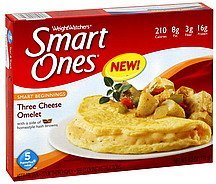

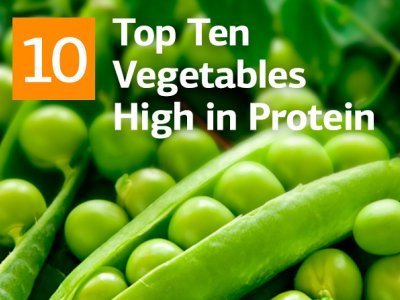

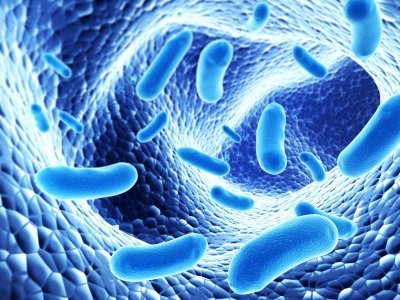



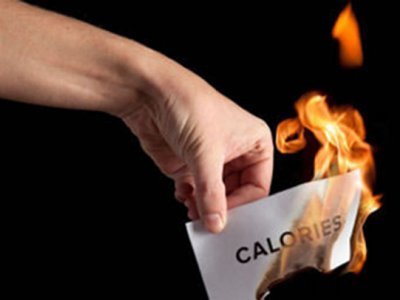

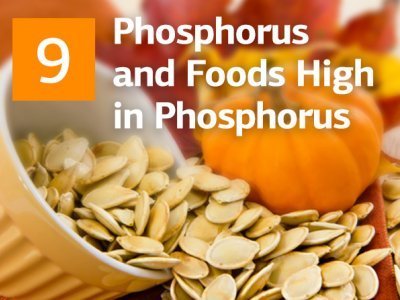
Add your comment